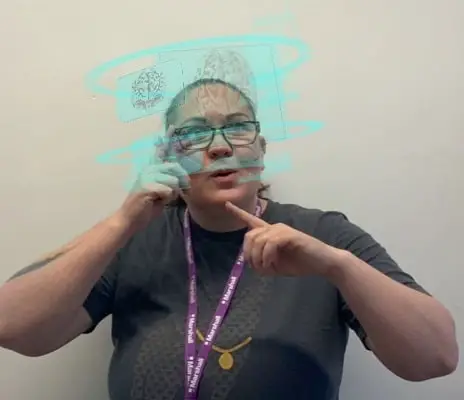Day in the life of
SEO Strategist – Tyla Oliver

I’m an SEO Strategist for a travel marketing agency called Travel Tractions. We are a remote company, so most days I work from home, or from a nearby coffee shop.

Working at a nearby coffee shop
On a day-to-day basis, I spend time auditing travel websites (generally for travel bloggers), finding new ways for their most valuable pages to rank in Google search results. I also spend time writing content for their websites, this often involves creating travel itineraries or guides for their readers.
As an SEO Strategist, I complete audits of travel websites, assessing where the website is weak and could do with improvements. I suggest pages that should be deleted from the website as they don’t have strong enough content to ever rank in Google search results.
I then look for pages that have a great potential to rank but aren’t yet doing so. These pages can be optimized by adding content as well as keywords to increase the relevancy of the page in Google’s ‘eyes’. This is incredibly important for travel blogs as many travel bloggers make money primarily through ranking on search engine results pages. A page that ranks well, offers the potential to make money through paid advertising or affiliate sales.

Using Ahrefs for keyword research
If a client wants ongoing strategy and support, I monitor their site using Google Analytics, and Google Search Console. These tools track the site’s performance, and I can see any increases and decreases in traffic, and investigate where that traffic is coming
from.
I create a report every month to showcase the website’s monthly performance and let the client know what our game plan is for the month ahead. This could include creating SEO-focused content, building links to their website, enhancing their social media strategy, or completing technical fixes on their site.

Monitoring client’s website with Google Search Console
If their site is undergoing web development, I work closely with the developer to make sure that all changes are going to positively affect the website rather than hurt its rankings.
Liaising with the client is a big part of my job. It’s important that the client is kept up to date with any changes being made on their site. This way, we prevent any surprises along the way.
When I’m not working on technical SEO fixes, I get involved in writing content for our clients’ websites. We have a team of writers that focus solely on content creation, but having a knowledge of SEO certainly helps to structure posts as I know what Google does and doesn’t like to rank. Having a background in copywriting has helped immensely with this aspect of the job.
Pros
I really enjoy seeing tangible results on our client’s websites. When SEO is applied correctly, it can increase the traffic to a website quite substantially, which means a hefty increase in revenue for our clients.
Working remotely means that I get to work from anywhere in the world, so being a full-time digital nomad is a real option. Our company is a performance-based company, so as long as I get my work done, the hours I work are completely up to me.
Year to year, the strategies that we implement have to change to stay up to date with the latest and most effective SEO practices. Although our company has ranking websites down to a fine art, with Google’s ever-changing algorithm, our strategies need to be continually modified to stay ahead of the game. I enjoy the fast-paced world of SEO as it never stagnates. Continuous learning is not just encouraged, it’s necessary.

Working from home
Cons
Working remotely with no compulsory office hours requires a great deal of discipline in order to get your work done. If I feel unmotivated during the day, I have a lot of catching up to do in the evening, often working night owl shifts.
If a site is undergoing development, there’s a lot that can go wrong. I need to monitor the site closely during these stages to make sure that there are no changes made that affect the website’s rankings, as this could be a huge loss of revenue for our client. This often means working over weekends, although always worth it, it can take a toll on my personal life. Of course, loving what I do goes a long way in making this all worthwhile.”
SEM Strategists
employ search marketing tactics to increase visibility and engagement with content, products, or services in Internet-enabled devices or interfaces. Examine search query behaviors on general or specialty search engines or other Internet-based content. Analyze research, data, or technology to understand user intent and measure outcomes for ongoing optimization.





.jpg)